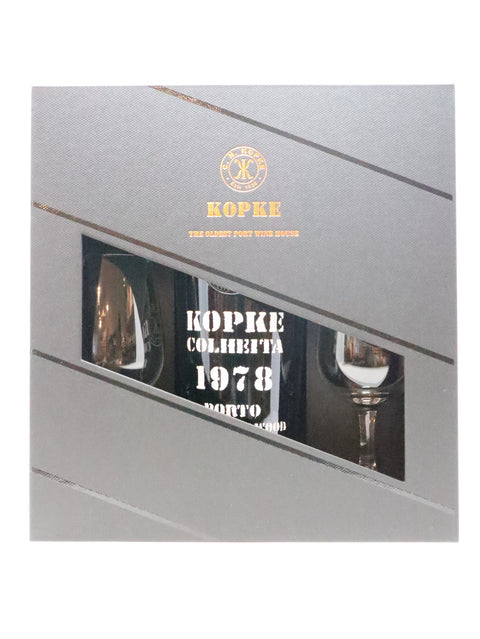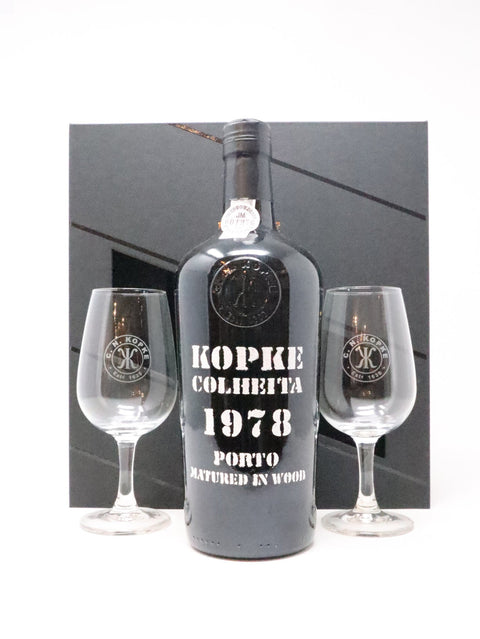

1978 Kopke Colheita, Porto, Portugal - Gift Pack
Brick color, turning amber at the halo. Seductive nose of spices, with notes of dried fruit accentuating the enveloping bouquet. In the mouth, it is harmonious with a wonderful structure. Elegant and distinctive with a complex and persistent finish.
ABOUT THIS WINE
Hand-picked at their optimum point, the grapes are de-stemmed, crushed and vinified according to a process that is based on a careful maceration with extraction of color, tannins and aromas from the skins, complemented by permanent pumping over during fermentation. This takes place in presses, at a controlled temperature between 28-30ºC, until reaching the desired Baumé degree. At this stage, the wine spirit is added (benefit), giving rise to a fortified wine. High quality wine from a single harvest. It ages in wood for variable periods of time, never less than 7 years, and is later bottled according to market requests.
ABOUT THIS PRODUCER
In 1636 German diplomat Nicolau Kopkë travelled with his son, Cristiano, from Hamburg to Portugal, representing the Hanseatic League. Two years later, he founded Nicolau Kopkë & Co., a shipping company which would eventually become universally recognised as the first Port House in the industry’s history. In 1781 they bought a farm in the Douro, making the transition from shipper to major producer and gradually making Port Wine their main business focus.
In 1828 C. N. Kopkë, great-great-grandson of Nicolau, sided the company with the Liberal Party during Portugal’s civil war. Following the war, he was awarded the title of Baron of Vilar and a decade later his nephew the title Baron of Massarelos. In 1841 the company’s name was changed to C. N. Kopke and remains such to this day. Almost a century later, in 1940, the House was awarded official recognition as the oldest in the world. Kopke have an excellent reputation backed by many gold medals, particularly for their Tawny (barrel-aged) Ports. Befitting their status as the oldest Port House, their bottles are easily recognisable by their traditional and hand-stencilled style.
Details:
| Grape(s) | Touriga Nacional, Tinta Roriz, Touriga Franca, Tinta Barroca. |
| Farming | Sustainable |
